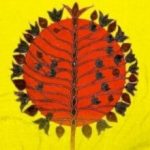 Sessions at the International Medieval Congress (IMC); Gerrit J. Schenk and Stephan F. Ebert, Institut für Geschichte der Technischen Universität Darmstadt (Web)
Sessions at the International Medieval Congress (IMC); Gerrit J. Schenk and Stephan F. Ebert, Institut für Geschichte der Technischen Universität Darmstadt (Web)
Time: 05.-08.07.2021
Venue: Leeds, UK
Proposals by: 31.08.2020
The current debate on climate change has led to new perspectives and approaches to agriculture and food habits on a global scale. The production and consumption of food among worldwide food chains has become a core element of agro-food-studies. However, interrelations of nature and culture in terms of socioecological preconditions, land-use practices and animal husbandry have been concerns of earlier generations too. In the late Middle Ages a combination of climatic trends during the Little Ice Age (c. 1300–1850) and social distresses such as the Great Famine (1315–17) or the Black Death (1347–52) with substantial mortality rates required pragmatic efforts in agriculture, economy and society.
Humanists translated agronomical knowledge into vernacular languages. The writings on agri- and horticulture by Bolognese jurist Pietro de’ Crescenzi are probably the most prominent translated compilations of this period. The technological innovation of Gutenberg’s printing press (1450) helped to distribute this ‘new’ knowledge on food and farming, viniculture and pomiculture (e.g., methods of grafting). As new food arrived in the Old World via the Columbian Exchange this knowledge helped to integrate plants into existing dietetics as the German physician Leonhart Fuchs demonstrated in his “New Herbal” (1543).
Ancient knowledge was not only copied and transferred into the present, certain plants were also examined and information on climate, soil and growing seasons was added to the texts. Sources like cooking recipes or account books inform about contemporary and changing eating habits and allow for a comparison of food production and consumption – of changes in theory and practice. These processes collided with transformations of the market economy (primal forms of ‘capitalism’) and manorialism. How did this affect local and rural communities and how did it form new ways of human interactions with and transformations of ecosystems? Read more and source … (Web)
